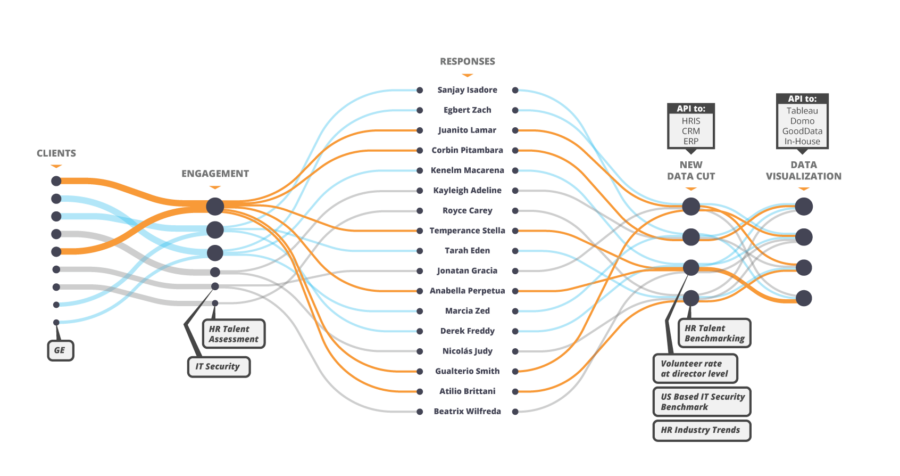Since the 1980s, electronic spreadsheets have been essential in many fields. Industries like accounting, business and research analysis, management consulting, and finance, which deal with large data sets, depend heavily on spreadsheets. However, when we look at much of today’s technology, it’s clear that spreadsheets are quickly becoming outdated. It’s surprising that we still use such manual processes to make decisions when studies indicate that 88% of spreadsheets have significant errors. While spreadsheets have served us well, it’s time to consider alternatives as data analysis techniques advance.
We at 9Lenses really enjoyed this recent podcast by NPR’s Planet Money that describes how the spreadsheet’s adoption was initially slow as it replaced bookkeeper jobs and was hard to understand without context. Ultimately, people realized that the spreadsheet provided productivity gains that enabled more business with fewer people, and its adoption quickly took off. We couldn’t help but see the parallels in the digital transformation movement; while in theory it seems obvious that businesses would want to replace manual, error-prone tools with better and faster technologies, the same barriers exist. Despite the apparent dangers of relying on spreadsheets, industries such as finance and management consulting are so deeply reliant that they are having a difficult time replacing spreadsheets with new technologies. NPR’s research demonstrates why, in much the same way that the spreadsheet took time to catch on, so will the technologies that eventually replace it.
Spreadsheet Replacement- Three Reasons to Use a Digital Platform
1. Manual Processes Introduce Error
While the spreadsheet automates number crunching, it still requires humans to manually input data and create the formulae for the calculations, inviting human error. Worse, it doesn’t tell you when there is an error. It simply gives you a conclusive number, and unless that number is wildly different from what is expected, there is no easy way to identify an error.
There are numerous examples that illustrate the dangers that follow from reliance on spreadsheets. The infamous London Whale incident is perhaps the most well-known of these- a simple syntax error in one cell of a spreadsheet led to billions of dollars in trading losses for J.P. Morgan. Spreadsheets rely on manual processes that are susceptible to error, and consequently, Excel has even gained the title of “the most dangerous software on the planet.”
The London Whale isn’t alone; this article from CIO.com describes eight of the worst spreadsheet mistakes in history. In each case, a simple error in a single cell led to millions or billions of dollars in losses.
2. Fewer People Needed For More Business
Industries have been known to adopt new technologies more slowly because new tools can be treacherous, as they make things easier and faster, they can also erase jobs because they decrease the number of necessary billable hours. The spreadsheet certainly had this effect in the world of accounting. As it decreased the hours needed for manual number crunching, it massively reduced the number of bookkeepers and accounting clerks needed to get a job done.
At the same time, however, technology also opens the door to more jobs, as it enables jobs to be completed more quickly. Although the spreadsheet erased bookkeeping jobs, it created many more accounting jobs, as companies were able to buy accounting services much more cheaply. Likewise, as new tools replace the spreadsheet, the number of finance or business analysts needed to complete a job will decrease, as manual processes such as data analysis and benchmarking will be automated. But simultaneously, the number of net jobs will increase because firms will be able to complete more contracts more quickly than before.
3. Dynamic Data Improves Analysis
Crunching massive amounts of data and illustrating complex data points with pretty graphs, spreadsheets can look impressive. But because they cannot update real-time as new data points are uncovered, they are essentially fancy calculators. Thus their usefulness is limited in today’s fast-paced business world because their data is static. Moreover, spreadsheets live in individual hard drives, making the sharing of data difficult and preventing input from multiple data sources. In order to come to fast and accurate conclusions, today’s analysts need tools that will make data accessible, flexible, and dynamic.

The spreadsheet took some time to catch on, but when it did, it quickly became all-encompassing, central to any industry that relies on data manipulation. But as transformational a tool as the spreadsheet is, in some cases the needs of today’s technology-centric consumers have surpassed what spreadsheets are capable of offering. Just as the spreadsheet had a slow adoption, tools that replace it will take time to catch on, too. But given the spreadsheet’s numerous shortcomings, we can only assume that spreadsheet replacement is right around the corner.
